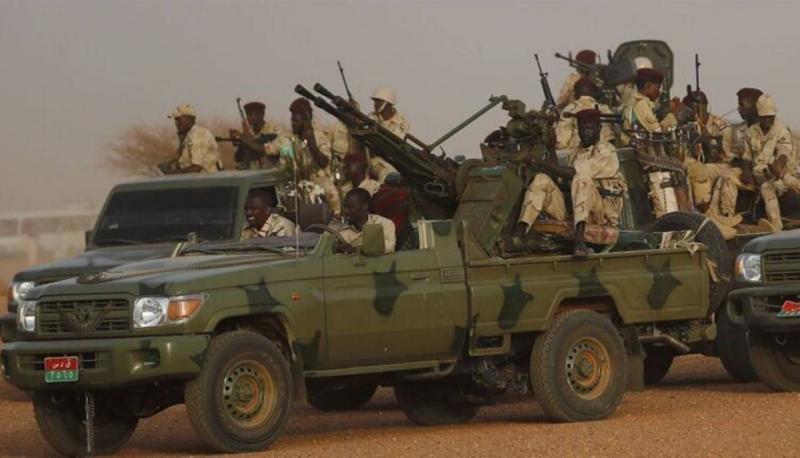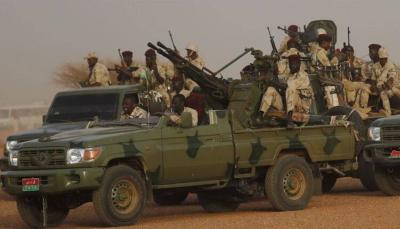The conflict that erupted in Sudan on April 15 has led to waves of violence based on ethnicity and caused the largest internal displacement crisis in the world, pushing at least one area in the Darfur region into famine, according to a report by the Integrated Food Security Phase Classification supported by the United Nations.
#### What Led to the Violence?
Tensions had been escalating for months before fighting broke out between the Sudanese army and the paramilitary Rapid Support Forces in the capital, Khartoum, on April 15, 2023. The partnership between the army and the Rapid Support Forces had been fragile since the ousting of the civilian government in the October 2021 coup, a move that disrupted the transition of power from the autocratic rule of Omar al-Bashir, who was ousted in 2019. The disagreement peaked over an internationally supported plan to launch a new transitional period with civilian forces. This plan required both the army and the Rapid Support Forces to relinquish power, and a dispute emerged over two key issues: the timeline for integrating the Rapid Support Forces into regular armed forces, and the chain of command between the army and Rapid Support Forces commanders, as well as the issue of civilian oversight.
#### Who Are the Key Players on the Ground?
The two main parties in the power struggle are General Abdel Fattah al-Burhan, the army chief and head of the ruling Sovereignty Council since 2019, and his deputy in the council, General Mohamed Hamdan Dagalo, known as Hemeti. Hemeti has gained wealth from gold mines and other projects, with his family and clan playing prominent roles. The western Darfur region serves as a power base, where the Rapid Support Forces were formed from militias that fought alongside government forces to crush rebels in a brutal war that escalated after 2003. Analysts say Burhan's position as army commander is no longer strong enough, as Islamists and veterans loyal to al-Bashir have gained influence since the 2021 coup. The Rapid Support Forces claim to be fighting to purge Sudan of the remnants of al-Bashir's regime, while the army states it is trying to protect the state from "criminal" rebels.
#### Who Is Winning?
Although the Sudanese army initially started the war with superior capabilities, such as air power, the Rapid Support Forces have grown in recent years into a well-equipped force spread across Sudan. During the early days of the conflict, Rapid Support Force units established themselves in neighborhoods throughout the capital. By the end of 2023, they had made rapid advances, tightening their grip on Darfur and controlling the Gezira state south of Khartoum, a major agricultural area. The army regained some control in March by advancing in Omdurman, one of the three cities that make up the Greater Capital, but the Rapid Support Forces have recently advanced again in the states of Sennar, White Nile, and Gadaref.
#### What Are the Risks?
The popular uprising that ousted al-Bashir ignited hopes that Sudan and its approximately 50 million inhabitants could rid themselves of autocracy, internal conflict, and economic isolation after decades. However, the ongoing war for more than 15 months has caused severe damage to infrastructure and displaced over 10 million people, exposing half the population to catastrophic levels of hunger and risking famine in 14 areas. Homes, offices, warehouses, and banks have been looted, hospitals have ceased operations, and trade and agriculture have been disrupted. Tens of thousands have been killed, according to unverified estimates, with both sides accused of committing war crimes.
#### What Is the Role of International Powers?
The conflict has become an opportunity for competition over influence in Sudan and the surrounding region among regional and international powers. Previously, Gulf countries sought to inject investments into sectors like agriculture, where Sudan has significant potential, and ports along the Red Sea. Russia aims to build a naval base on the Red Sea. Western powers, including the United States, supported the transition towards democratic elections following al-Bashir's ousting. Diplomatic interest in Sudan has diminished due to the wars in Ukraine and Gaza.
#### What Efforts Have Been Made to End the War?
Saudi Arabia and the United States brought delegations from both factions to Jeddah last year for talks, but the agreed ceasefire never held, and the process stumbled. Egypt and the Intergovernmental Authority on Development (IGAD) launched other initiatives that raised fears of overlapping diplomatic efforts and competition. The American special envoy to Sudan is pressing for the resumption of talks this month in Geneva, but a drone attack at a military parade attended by Burhan cast doubt on the success of these efforts.




